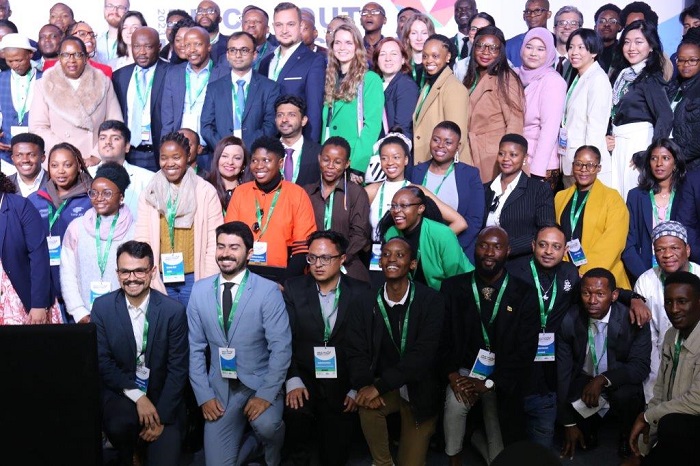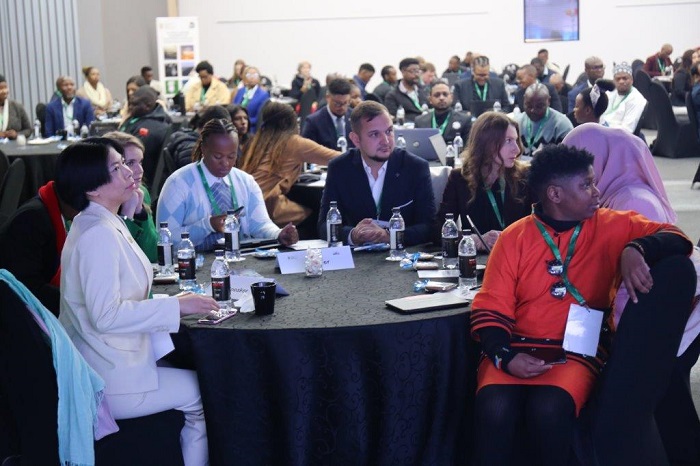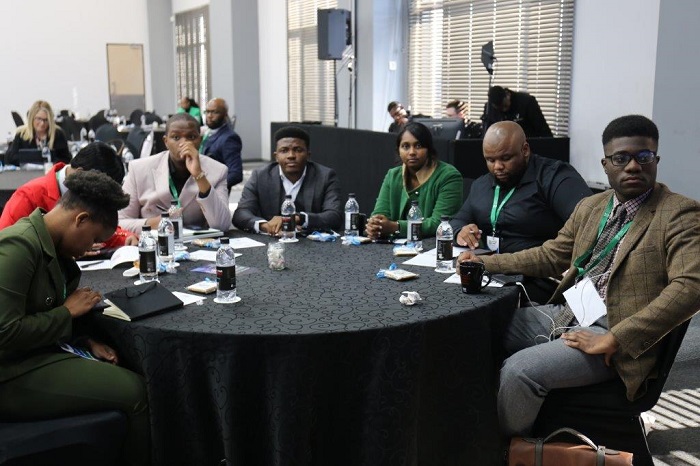A youth delegation of ROSATOM attended in the 5th BRICS Youth Energy Summit, which closed August 4 in Johannesburg.
Attended by over 400 delegates from 30 countries of the world, the event brought together South African energy industry executives, international experts, and young entrepreneurs, researchers, and community leaders from the G5 countries and the global South, who jointly determine how young people can contribute to the development of the energy sector on the African continent.
The Summit, organized by the Department of Mineral Resources and Energy of the Government of South Africa and the BRICS Youth Energy Agency (BRICS YEA), was also supported by ROSATOM, the Development Bank of South Africa (DBSA), the South African National Energy Development Institute (SANEDI) and other organizations.

Jacob Mbele, Director General of South Africa’s Department for Mineral Resources and Energy, noted in his remarks that this year’s BRICS theme for South Africa is: “BRICS and Africa: a partnership for mutually accelerated growth, sustainable development and inclusive multilateralism. In Africa, more than 600 million people lack access to clean reliable energy and more than 900 million households lack access to clean cooking sources. Insufficient and inadequate access to energy is critical for women, youth, and children. Therefore, as Chair of BRICS in 2023, South Africa has placed youth at the center of its priorities and is ready to lead this international and intergenerational effort to galvanize youth action to ensure reliable and sustainable access to energy for all of Africa.”
YEA BRICS Leader Alexander Kormishin welcomed the Summit participants on behalf of the community and presented plans for its development for the next year: “Today we are hosting the BRICS Youth Energy Summit for all of Africa and countries that share the vision of youth in coming together to develop the energy sector. We have over 400 delegates with us at this moment, representing more than 30 countries around the world, and we expect our positive momentum to carry across the Global South.”
The ROSATOM youth delegation consisted of 10 representatives of ROSATOM’s youth community. In the course of the Summit’s business program, they spoke in panel sessions and took part in discussions. In particular, Oleg Spoyalov, PR manager of Rusatom – International Network, took part in a discussion on the development of youth initiatives to provide access to energy on the African continent and. He spoke about the role of youth communities in developing and promoting a carbon-free energy agenda, as well as current projects that contribute to this, in particular, the Global Partners Network initiative, created with the support of Rosatom and IEA BRICS, which brings together business partners from various industries and young professionals in search for answers to the challenges of the human-centered energy transition.
Milana Ozerina, International Activities Specialist at the Rosatom Technical Academy, shared her expertise on gender balance in the nuclear industry as part of the session “Empowering Girls in STEM”. The panelists discussed existing international and national initiatives to attract girls to STEM, the importance of mentoring in professional development, and gender balance issues in BRICS countries.

Two more members of the youth community – Anastasia Muss, Head of the Development and International Business Unit of Science and Innovations JSC, and Maria Voznesenskaya, Head of the Decommissioning Program Management Department of TVEL JSC – took part in a session dedicated to discussing promising nuclear technologies aimed at combating climate change, such as small modular reactors, fast reactors and the closed fuel cycle, fusion power, and RAW processing technologies. During the discussion, the participants emphasized the need for international scientific and technical cooperation within the BRICS framework and shared innovative practices to inform the public about nuclear technologies.
During the session “Employment opportunities for young people in low-carbon energy”, Renata Faizova, Head of Sustainable Development Research and Programs at the Rosatom Corporate Academy, spoke about the practices used by the State Corporation to attract talented young people to science and business. She also spoke about teaching sustainable leadership and creating conditions for unlocking the potential of young employees and involving them in critical areas of business.
Furthermore, the Summit featured a meeting of Global Partners Networks community members, where participants discussed further strategic development of the community and reported on the status of projects being developed in the four thematic tracks of the energy agenda.
References:
The V BRICS Youth Energy Summit brought together representatives of government agencies, businesses, industry associations and business communities. The summit featured nine thematic sessions dedicated to various aspects of involving young people in the development of the energy sector in the BRICS countries. At panel discussions and thematic workshops, the Summit participants discussed with South African energy experts and leaders the involvement of youth in the energy sector, as well as the challenges facing the global BRICS youth community in the context of the energy transition. These include energy access and energy poverty, engaging girls in STEM careers, international cooperation to achieve UN SDG 7 (“Ensure access to affordable, reliable, sustainable and modern energy for all”, one of the 17 UN Sustainable Development Goals), the role of critical minerals and circular economy for the energy transition, and much more. All their proposals were included in the final Declaration, to be presented at the 8th BRICS Ministerial Meeting on Energy, scheduled ahead of the 15th Summit of the Five Heads of State on August 18, 2023, in Pretoria, South Africa. The event program included technical tours, meetings with industry experts, and networking sessions.
The BRICS Youth Energy Agency is an international youth organization and a global flagship for the development of youth energy cooperation in the context of global trends and challenges. Established in 2015 following the First BRICS Youth Summit in Kazan, BRICS YEA unites the largest youth professional community in the BRICS countries and the Global South, and is a partner of the G5 national governments and major international organizations, including the UN, on youth participation in energy and climate change issues. In the Russian Federation, the BRICS YEA is a key competence center for international youth cooperation on energy and climate issues.

Global Partners Network is a new BRICS YEA platform that will bring together business partners from various industries and young professionals to find answers to the challenges of the human-centered energy transition.